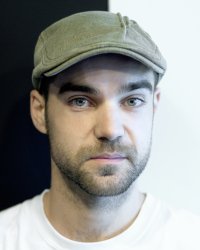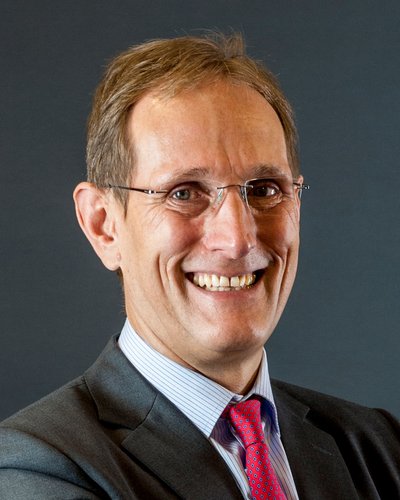Keynotes
Quality in Visual Effects: Dealing With the Unexpected

Eric Vezinet, Double Negative Singapore
Visual Effects (VFX) are a big part of movie production these days. Quality in this industry means well-integrated visible & invisible effects. To ensure optimal production value, it is important for clients to understand the VFX pipeline. Early-on design decisions and data acquisitions have to be made, and a constant exchange throughout the whole post-production process is mandatory for efficiency and quality. An unexpected change can be potentially disastrous, and VFX companies have to come up with alternative solutions to prepare for the worst. A common scenario is a change in technology to alternatives that are more adapted to actual production requirements. This is why portability and consistency over different rendering engines as well as animation, crowd, and simulation pipelines, are an essential part of the job. A worst-case scenario is an actual drop in production quality.
In this talk, I will provide an overview of how VFX magic happens these days, giving a brief description of Double Negative’s pipeline. This will show that high quality content can be delivered only if certain conditions are met. I will then talk about Double Negative’s physically plausible set of rendering tools, which ensure photo-realistic images, and facilitate portability and consistency over the different 3D packages in use at Double Negative.
Biography
Eric Vezinet is the Lighting & Rendering Supervisor at Double Negative Singapore. After a heavily Maths & Physics focused B.Sc. in France (Ecole des Mines d’Alès), he oriented his studies to fulfill his long passion for cinema. He completed a M.S. centered around Computer Graphics at Boğaziçi University, which hosted such great artists as Istanbul director Nuri Bilge Ceylan, recently winner of the Palme d’Or at Cannes Film Festival. Following an internship at the studio Action Synthèse in Marseille, his first steps in the industry occurred in an Animation & VFX Studio in Paris, Machine Molle. That’s where he discovered some industry specific technologies, such as 2D/3D Packages & Rendering Engines.
Eric started at Double Negative London as part of VES Award winner Philippe Leprince’s core rendering team. He worked there as a Shader developer, and was involved in the V4/V5 plausible shading framework used at Double Negative on such challenging films as Total Recall, The Dark Knight Rises, Skyfall, Man of Steel and Godzilla. This work, accomplished with Philippe Leprince, Marc Bannister and Soren Ragsdale, was pre-nominated for The Academy’s Scientific and Technical Awards in the Technical Achievement category in 2013. Willing to learn more about “how we do movies”, he jumped into the production side last year, being credited as the Shading Supervisor for Double Negative’s work on Hercules (2014). He moved to Singapore early this year, to face new challenges.
Estimating Image and Video Quality: Accuracy and Applications

Amy Reibman, AT&T Labs
Abstract
As digital images become ubiquitous, it is increasingly necessary to accurately estimate the visual quality of images and video. Unfortunately, the subjective tests used to evaluate image and video quality estimators (QEs) are expensive and time consuming. More problematic, the majority of subjective testing is not designed to find systematic weaknesses in the evaluated QEs.
In this talk, I draw on some lessons of software testing to create additional evaluation procedures that can identify a QE’s potential weaknesses. Knowledge of these weaknesses can be used to improve a QE during its design process, to assist in selecting which QE to deploy in a real system, and to interpret the results of a chosen QE once deployed. The ease with which the proposed methods identify weaknesses in a variety of existing QEs indicates significant flaws in the current evaluation methodology. These methodological flaws are more important than any specific weaknesses in a particular QE.
Biography
Amy R. Reibman is a Lead Member of Technical Staff at AT&T Labs – Research. She received the B.S., M.S. and Ph.D. degrees in electrical engineering from Duke University. After being an assistant professor in the Department of Electrical Engineering at Princeton University, she joined AT&T Bell Laboratories, and became a Distinguished Member of Technical Staff in 1995. She is currently a Lead Member of Technical Staff in the Video and Multimedia Services Research Department at AT&T Laboratories.
Dr. Reibman was elected IEEE Fellow in 2005, for her contributions to video transport over networks. In 1998, she won the IEEE Communications Society Leonard G. Abraham Prize Paper Award. She was the Technical co-chair of the IEEE International Conference on Image Processing in 2002; the Technical Co-chair for the First IEEE Workshop on Multimedia Signal Processing in 1997; the Technical Chair for the Sixth International Workshop on Packet Video in 1994. She was a Distinguished Lecturer for the IEEE Signal Processing Society from 2008-2009, and served on the IEEE Fellow Selection committe from 2012-2014.
Cost-effective Service Excellence

Jochen Wirtz, National University of Singapore
Abstract
Strategy research widely holds that it is extremely difficult to combine the purportedly incompatible strategies of differentiation (through service excellence and continuous innovation) and cost leadership. Strategy experts argue that it is not possible to do so for a sustained period because dual strategies entail contradictory investments and organizational processes. This seems particularly true for services because service characteristics (among them distributed operations, simultaneous production and consumption, and customization in real time at the point of customer interface) make industrialization, deskilling, economies of scale and productivity gains hard to achieve. Unlike in goods manufacturing with its efficient global supply chains that can be both highly cost-effective and deliver top notch quality, service productivity and service quality remain a challenge. The root cause of this challenge is customer-introduced uncertainty. That is, operations cannot be organized and scheduled at optimum efficiency as customer arrival times and customer service requests, needs and wants (i.e., what customer want to consume when and how) are uncertain. If firms strive to satisfy their customers, they have to have capacity ready at the time of customer demand, and they have to provide (expensive) flexibility at the customer interface offering the right type of process capacity, employee skills and supplies to deliver against customer needs and expectations. Offering all these “on demand” is expensive. In this talk, I will explore strategies through which service firms can potentially achieve high quality (i.e., service excellence) at low unit costs, and develop a conceptual framework on cost-effective service excellence.
Biography
Jochen Wirtz is Professor of Marketing at the National University of Singapore (NUS), the founding director of the dual degree UCLA – NUS Executive MBA Program (ranked globally #5 in the Financial Times 2013 EMBA rankings, and #3 in the EIU 2013 rankings), a member of the NUS Teaching Academy, and an international fellow of the Service Research Center at Karlstad University, Sweden. Dr. Wirtz holds a Ph.D. in services marketing from the London Business School.
Professor Wirtz’s research focuses on service marketing and has been published in over 90 academic journal articles, 130 conference presentations, and some 40 book chapters. His over 10 books include Services Marketing – People, Technology, Strategy (Prentice Hall, 7th edition, 2011), co-authored with Professor Lovelock, which has become a world’s leading services marketing text book that has been translated and adapted for over 26 countries and regions, and with sales of over 600,000 copies. In recognition of his excellence in teaching and research, Professor Wirtz has received over 40 awards, including the Academy of Marketing Science (AMS) 2012 Outstanding Marketing Teacher Award (the highest recognition of teaching excellence of AMS globally) and the prestigious, top university-level Outstanding Educator Award at NUS. He also was the winner of the inaugural Outstanding Service Researcher Award 2010 and the Best Practical Implications Award 2009, both by Emerald Group Publications. He serves on the editorial review boards of over ten academic journals.
Professor Wirtz has been an active management consultant, working with international consulting firms, including Accenture, Arthur D. Little and KPMG, and major service firms in the areas of strategy, business development and customer feedback systems. He has been involved in a number of start-ups including Accellion, TranscribeMe and Up! Your Service.